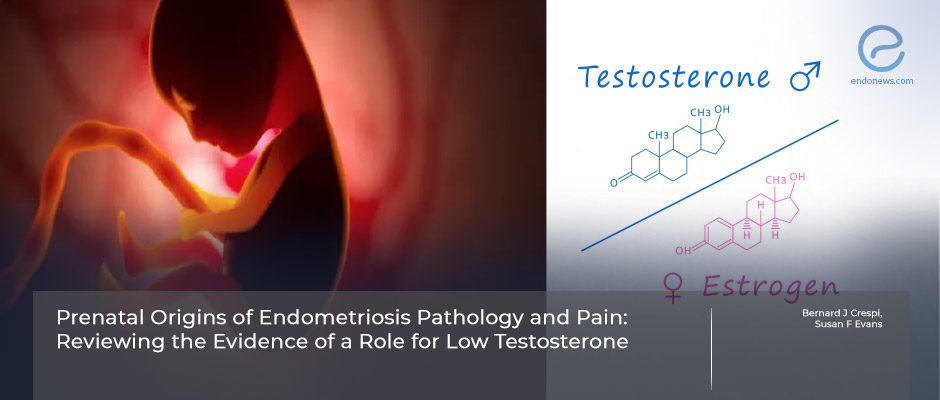Exploring the Potential Impact of Prenatal Testosterone on Endometriosis
May 29, 2023
Intrauterine testosterone levels might be related to endometriosis development.
Key Points
Highlights:
- This article explores the potential prenatal origins of endometriosis pathology and pain.
- It focuses on the role of low testosterone as a potential risk factor for endometriosis development.
- The authors review existing research studies to support their hypothesis.
Importance:
- Understanding the prenatal factors contributing to endometriosis can provide valuable insights into its development and potential therapeutic interventions.
What's done here:
- The authors discuss the hormonal environment during prenatal development, specifically focusing on testosterone levels.
- They review animal studies and clinical observations to support the hypothesis that low prenatal testosterone exposure may contribute to endometriosis development.
- They describe the biological mechanisms through which testosterone influences the immune system and its potential role in endometriosis pathology.
Key Results:
- The research suggests that low prenatal testosterone levels may be associated with the development of endometriosis and its associated pathology and pain.
- The studies showed that short anogenital distances were initiated by low intrauterine testosterone levels and were correlated with the postnatal risk of early menopause, low follicular numbers, and endometriosis diagnosis.
- Testosterone may influence immune response and inflammation, such as lower levels of testosterone are associated with higher levels of pro-inflammatory IL-1β and lower levels of β-endorphin, which are known to play a role in endometriosis.
Limitations:
- The exact causal relationship between low prenatal testosterone and endometriosis development is not yet fully established.
- The studies reviewed in the article provide supportive evidence but are not definitive proof.
Lay Summary
The exact causes of endometriosis still remain uncertain but emerging evidence suggests that prenatal factors may contribute to its development.
In the review study by Bernard J Cresp et al, the authors discuss the hormonal environment during prenatal development and propose that exposure to low testosterone levels could be a potential risk factor for endometriosis later in life. They review existing research studies that provide support for this hypothesis, including animal studies and clinical observations.
The article further explores the biological mechanisms through which low prenatal testosterone exposure may contribute to the development of endometriosis. The influence of testosterone on the immune system, specifically in modulating inflammation and immune response, which are known to play a role in endometriosis pathology is discussed.
The authors describe the reason for their hypothesis referring to the studies that find a relation between shorter anogenital distance lengths, low levels of intrauterine testosterone exposure, and the risk of an endometriosis diagnosis in those populations. They highlight the importance of considering prenatal factors in the development of endometriosis and call for further research to better understand the prenatal origins and potential therapeutic implications.
This article was recently published in the Journal of Pain Research.
Research Source: https://pubmed.ncbi.nlm.nih.gov/36762368/
intrauterine testosterone endometriosis risk anogenital progesterone pro-inflammatory IL-1β

